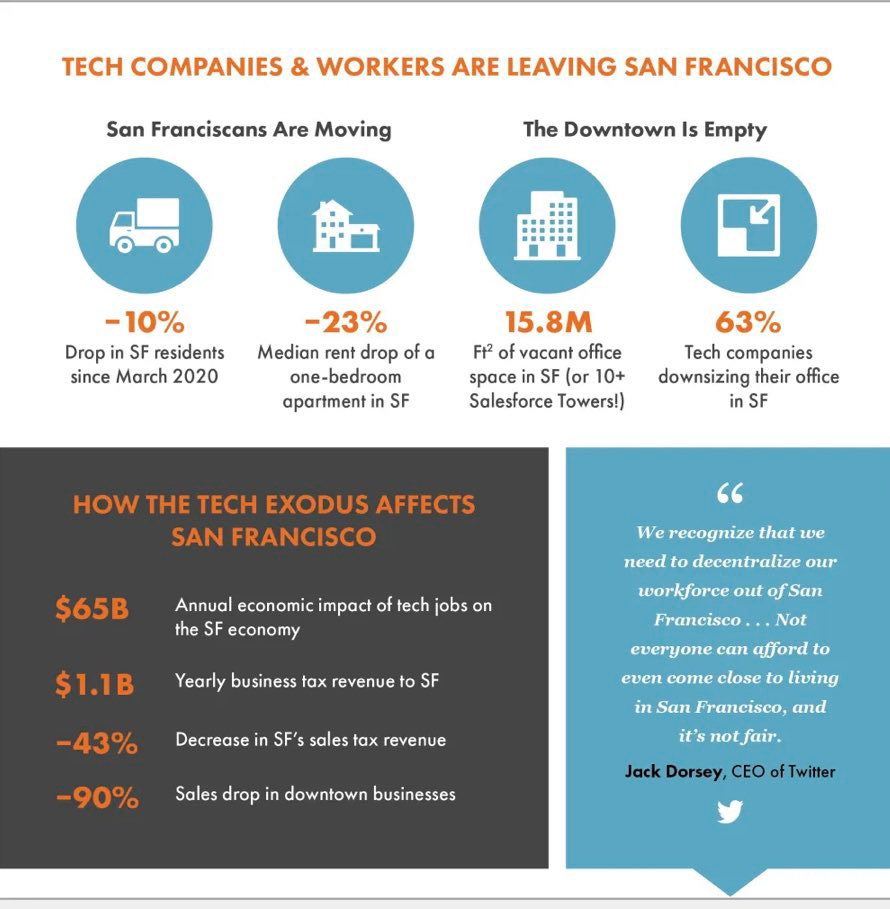The Location Stack
Find jurisdictions for technological progressives. Best ten submissions earn $100 in BTC.
Note: This post was originally created at 1729.com which has evolved into thenetworkstate.com.
For the last few decades, it was a sound decision for startups to headquarter in Silicon Valley and incorporate as a Delaware C-corporation. Zuckerberg famously allowed Facebook to first be incorporated in Florida before switching to Delaware, and that early decision is cited as an example of how little he knew about startups at the time. As Thiel put it, a Delaware C-Corp was the "right answer". That's because Delaware chose to specialize in corporate law, and has a sophisticated Court of Chancery that is experienced in adjudicating complex issues.
Today, however, San Francisco is over as the tech capital of the world. And you don't need to come to Sand Hill to raise or Wall Street to exit anymore. The combination of COVID, crypto, remote, and the rise of the rest have scrambled the map and made it possible to disaggregate your personal location, your corporate location, the location of your coworkers, the location of your servers, the location of your funds, the location of your company's incorporation, and so on.
The best practices in this new world are yet to be developed.
One way to think about it is in terms of the right hybrid: how do you combine operations in various places for maximum effect? For example, in 2012 Coinbase chose to allow people to buy bitcoin with fiat, and to become the "most trusted name in cryptocurrency." Many people mocked this as it seemed to defeat the purpose of crypto. It involved password resets, interaction with banks, and the requirement that users trust a centralized service – all of which seemed to cut against the grain of what Bitcoin stood for. But that synthesis turned out to be a $50B business.
Conversely, the idea of enterprise blockchain has generally not been a successful hybrid. It's had all the bureaucracy of cross-organization coalitions and the technical complexity of decentralization, without the offsetting financial upside in the form of a token to compensate for that difficulty.
If you want, you can map this to the Hegelian dialectic: thesis, antithesis, synthesis. For Coinbase, the thesis was Bitcoin, the antithesis was the banks, and the synthesis was buying Bitcoin with your bank account. But as enterprise blockchain shows, just because you can form a synthesis, doesn't mean it will be the right hybrid.
The Location Stack
Another way to think about it is in terms of the location stack. You can base each part of your operation in Miami, Austin, or Wyoming...or in Finland, Taiwan, Portugal, Singapore, Chile, or New Zealand. Some of these are better for crypto, others for immigration, still others for things like self-driving cars.
But the more places you set up in, the more complexity may arise due to unanticipated interaction effects between jurisdictions.
For crypto in particular, as the legal landscape becomes more complicated, and as places like Wyoming and Switzerland make strong bids for on-chain incorporation, defaulting to a Delaware C-corp can no longer be considered the obvious right answer. It is just one choice among many which might make sense, depending on the organization.
But the first step in making these choices is to create a list of jurisdictions around the world that are friendly to technological progressives. And that is the purpose of this task.
✅ Task: Earn $100 in BTC
Research jurisdictions that are friendly to technological progressives and write a blog post on the best options.
Here are a few examples to illustrate the kinds of jurisdictions we're looking for.
Wyoming gives legal status to decentralized autonomous organizations ("DAOs") and made Kraken a bank.
Miami has the most pro-Bitcoin mayor in the US, and he's actively working to improve legislation.
Estonia has a reputation for technological innovation and offers e-residency.
Japan was the first country to approve Bitcoin as legal tender.
And here's an excellent example of a summary post, that pulls together information on various jurisdictions. When you write your post, extra credit if you put it in the form of a microsite, maybe using something like carrd.co.
🏆 Winners: Best Reviews
The following ten submissions received $100 in Bitcoin for their posts and micro-sites on jurisdictions that are friendly to technological progressives. Check them out!






